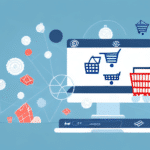Understanding Local Storage Objects (LSO) in Shopify Plus
Local Storage Objects (LSO) are essential JavaScript objects that store data on a user's local device, enhancing the functionality and personalization of Shopify Plus stores. By leveraging LSO, Shopify Plus can retain user preferences, login information, and items in a shopping cart, thereby providing a seamless and tailored shopping experience.
LSO enables e-commerce platforms to analyze customer behavior and preferences, which is crucial for creating targeted marketing campaigns and improving product recommendations. According to a Shopify Plus report, personalized shopping experiences can increase conversion rates by up to 80%, highlighting the significance of effectively utilizing LSO.
Importance of LSO for E-commerce Websites
LSO plays a pivotal role in enhancing the user experience on e-commerce websites. By storing data such as customer preferences, recently viewed items, and cart contents, LSO allows Shopify Plus stores to offer personalized recommendations and streamline the checkout process. This not only improves customer satisfaction but also drives higher sales.
Furthermore, LSO contributes to improved website performance by reducing the need for repeated server requests, which results in faster page load times and decreased network traffic. Faster websites are favored by both users and search engines, potentially boosting your site's SEO rankings. According to Google's search guidelines, page speed is a critical factor in search rankings.
Benefits of Optimizing LSO for Shopify Plus
Optimizing LSO for Shopify Plus can lead to significant benefits, including:
- Personalized Customer Experience: Tailored recommendations and saved preferences increase customer engagement and loyalty.
- Enhanced Website Performance: Reduced server requests and faster load times improve user satisfaction and SEO rankings.
- Data-Driven Insights: Analyzing LSO data provides valuable insights into customer behavior, aiding in strategic decision-making.
- Cost Efficiency: Optimized LSO usage can lower hosting costs by minimizing server load.
These benefits collectively contribute to a more effective and competitive online store. A study by Accenture found that businesses investing in personalized customer experiences see a significant increase in customer retention and sales.
Connecting LSO with Shopify Plus
Integrating LSO with Shopify Plus involves several key steps:
- Enable LSO on Your Website: Implement JavaScript code to initialize and manage LSO, ensuring it aligns with your website’s functionality.
- Configure Server Settings: Adjust HTTP headers and cookies to support LSO, enhancing data storage and retrieval processes.
- Testing and Optimization: Regularly test your website to ensure LSO functions correctly and make necessary adjustments to optimize performance.
Proper integration of LSO not only enhances the user experience but also facilitates better data management and utilization. Refer to the Mozilla Developer Network for detailed guidelines on implementing LSO.
Best Practices for Managing LSO in Shopify Plus
Effective management of LSO in Shopify Plus involves adhering to several best practices to ensure security and compliance:
- Ensure GDPR Compliance: Adhere to data protection regulations by obtaining user consent and providing options to manage their data.
- Data Encryption: Encrypt sensitive data stored in LSO to protect against unauthorized access.
- Limit Data Storage: Only store necessary information to minimize potential privacy risks and improve website performance.
- Transparency with Users: Clearly communicate how user data is collected and utilized, fostering trust and reliability.
Implementing these practices safeguards user data and builds a trustworthy relationship with your customers. For more on GDPR compliance, visit the official GDPR website.
Optimizing LSO Performance in Shopify Plus
To maximize the efficiency and effectiveness of LSO in Shopify Plus, consider the following optimization techniques:
- Optimize JavaScript Code: Ensure that your JavaScript is efficient and does not slow down page load times.
- Minimize Data Stored: Only store essential information to reduce the load on users’ devices and improve access speed.
- Implement Data Expiration: Set expiration dates for stored data to prevent overloading and ensure data relevance.
- Regular Performance Testing: Continuously monitor and test your website to identify and resolve performance issues promptly.
By implementing these strategies, you can enhance both the performance of your Shopify Plus store and the overall user experience. Tools like Google PageSpeed Insights can help assess and improve your site’s performance.
Security Concerns and Solutions for Managing LSO in Shopify Plus
Managing LSO securely is paramount to protect customer data and maintain trust. Key security considerations include:
- Data Encryption: Encrypt all sensitive information stored in LSO to prevent data breaches.
- Regular Security Audits: Conduct periodic audits to identify and address potential vulnerabilities.
- Use Secure Connections: Implement SSL certificates to ensure data transmission is secure.
- Restrict Data Access: Limit access to LSO data to authorized personnel only.
Implementing robust security measures not only protects your customers but also safeguards your business from potential legal and financial repercussions. Refer to the OWASP guidelines for comprehensive security best practices.
Measuring the ROI of Optimizing and Managing LSO in Shopify Plus
Assessing the return on investment (ROI) of optimizing and managing LSO in Shopify Plus involves evaluating key performance indicators (KPIs) such as:
- Sales Growth: Track increases in sales attributed to personalized user experiences enhanced by LSO.
- Customer Engagement: Measure metrics like average session duration and page views per visit.
- Website Performance: Monitor page load times and server response rates.
- Customer Retention Rates: Assess the ability to retain customers over time through improved user experiences.
Utilizing tools like Google Analytics can help you track these KPIs effectively. By analyzing this data, you can make informed decisions about future investments in LSO optimization, ensuring that your strategies are delivering the desired financial and operational outcomes.
Future Trends and Predictions for LSO in E-commerce
The landscape of LSO and e-commerce is continually evolving, with several emerging trends shaping the future:
- Enhanced Personalization: Advances in LSO technology will allow for even more precise and dynamic personalization of user experiences.
- Increased Focus on Privacy: With growing concerns over data privacy, e-commerce platforms will prioritize transparent and secure LSO practices.
- Integration with AI and Machine Learning: Combining LSO with artificial intelligence will enable more sophisticated data analysis and predictive insights.
- Cross-Device Synchronization: Improved synchronization of LSO data across multiple devices will provide a consistent user experience.
Staying abreast of these trends will ensure that your Shopify Plus store remains competitive and continues to meet the evolving needs of customers. For insights on future e-commerce trends, consult resources like the Shopify blog.
Conclusion
Local Storage Objects (LSO) are a vital component for optimizing Shopify Plus stores, enabling personalized user experiences and enhancing overall website performance. By understanding the fundamentals of LSO, implementing best practices for management and security, and staying informed about future trends, you can significantly improve your e-commerce platform's effectiveness and customer satisfaction.
Implement the strategies outlined in this article to leverage LSO effectively, driving increased sales and fostering long-term customer relationships. Continuous optimization and management of LSO will ensure that your Shopify Plus store remains agile, secure, and customer-centric in a competitive online marketplace.






















